Are you ready to dive into the world of rights sale negotiation? This intricate process can be both exciting and challenging, as it involves not just understanding the legalities but also fostering effective communication. In this article, we'll explore key strategies and tips that can help you navigate the nuances of negotiation, ensuring you secure the best possible outcome for your interests. Join us as we unpack these essential insights, and get ready to empower your negotiation skills!

Clear Identification of Parties
In a rights sale negotiation, clear identification of parties involved is crucial for establishing responsibilities and expectations. Parties may include authors, agents, publishers, and intellectual property rights holders, each with distinct roles. For instance, the author, often a sole proprietorship or individual, retains creative ownership while the agent facilitates negotiations, typically compensated through a percentage commission. The publisher, a commercial entity, seeks the rights to distribute the work, whereas the rights holder, which may differ from the author, owns the intellectual property and may exercise licensing agreements. Accurate legal names and contact details of each participant, as well as any applicable registration numbers (like ISBN for books), ensure transparency and accountability in the transaction process. Such clarity minimizes the risk of disputes, streamlined communication, and successful collaboration.
Details of Rights and Duration
The sale of rights in creative industries, such as publishing or film, often involves specific terms and duration. For instance, the exclusive rights to a novel, like "The Night Circus" by Erin Morgenstern, can be negotiated for a duration of five years, allowing only one publisher to produce physical and digital copies. Geographic limits may also apply, with the publisher obtaining rights solely for North America, which may involve additional considerations for international markets such as Europe or Asia. In the case of adaptation rights for a screenplay, specifying a timeframe of three years for film production may be typical, ensuring that the production company has adequate time to develop the project without external competition. Detailed definitions of rights, including adaptation, distribution, and merchandising, along with potential sublicensing agreements, are crucial for clarity in negotiations.
Financial Terms and Royalties
Negotiating financial terms and royalties in rights sales is crucial for maximizing revenue and ensuring fair compensation. Key financial terms include upfront payment structures, typically ranging from 10% to 50% of the projected earnings, depending on the potential market value of the work. Royalties, based on sales percentages, usually range from 5% to 15% for print books and can be higher for digital content, often reaching up to 20%. Additional terms such as advance payments, payment schedules, and exclusive rights duration can significantly impact total earnings. Establishing clear clauses regarding territory rights, especially in lucrative markets like North America and Europe, will influence financial outcomes. Regular accounting and clear reporting timelines help maintain transparency and trust in ongoing transactions.
Obligations and Deliverables
Negotiating rights sales, particularly for intellectual property, involves clear obligations and deliverables, ensuring mutual understanding between parties. License agreements often stipulate specific obligations such as financial considerations, including upfront fees and ongoing royalties calculated as a percentage of revenue from the licensed content. Deliverables may include completed works, art assets, manuscripts, or distribution schedules, often subject to quality standards defined in the contract. Timelines are critical, with specific milestones dictating when materials must be delivered, often involving review processes. Additionally, compliance with legal requirements, such as copyright laws and industry regulations, establishes a framework within which both parties must operate, safeguarding ownership rights while facilitating the transfer of use. Negotiators must also address termination clauses, outlining conditions under which agreements can be ended, preserving interests if obligations are unmet.
Termination and Renewal Conditions
Negotiating the termination and renewal conditions for the sale of rights, such as literary, film, or publishing rights, requires clarity and precision in the outlined terms. Key elements include specifying the duration of the initial term, typically ranging from five to ten years, and defining the conditions under which either party can terminate the agreement, including breach of contract or failure to meet specified performance metrics. Renewal provisions should detail the process for extension, typically by mutual consent, and include any adjustments in financial terms or rights adjustments based on market conditions or evolving industry standards. Additionally, geographical considerations and market shifts during the agreement's lifecycle may impact renewal discussions, necessitating periodic reviews to ensure relevancy and fairness in the evolving landscape. Clear definitions of key terms, including "performance metrics," "breach of contract," and "geographical limitations," are essential for mutual understanding and compliance.

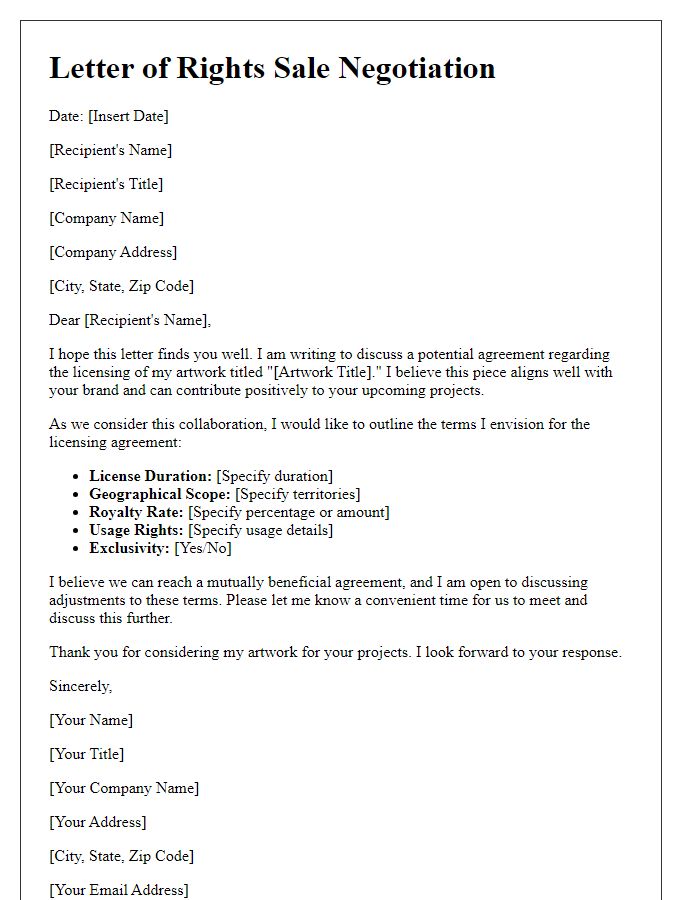
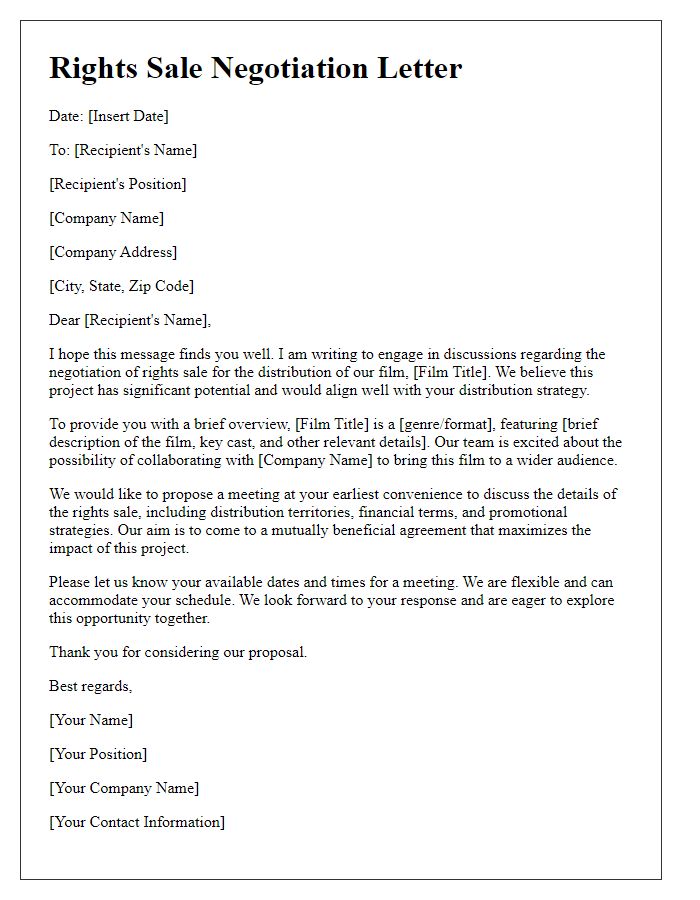

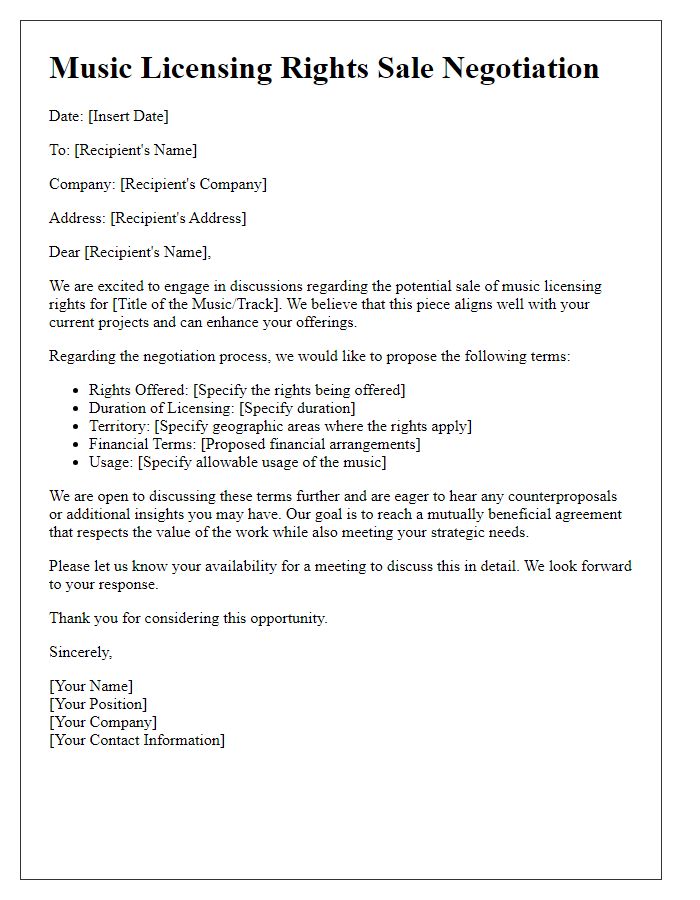
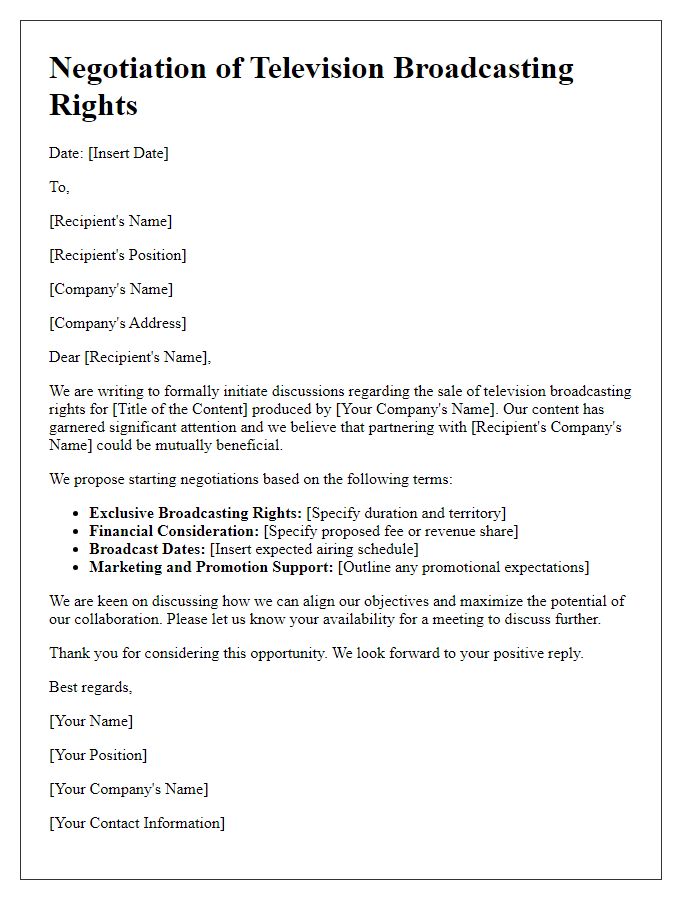
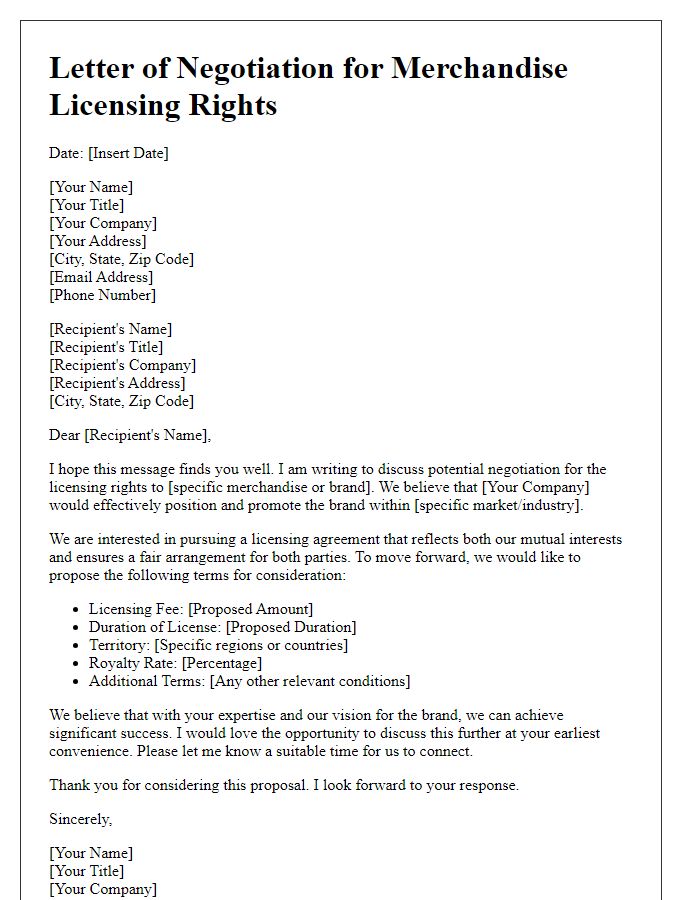
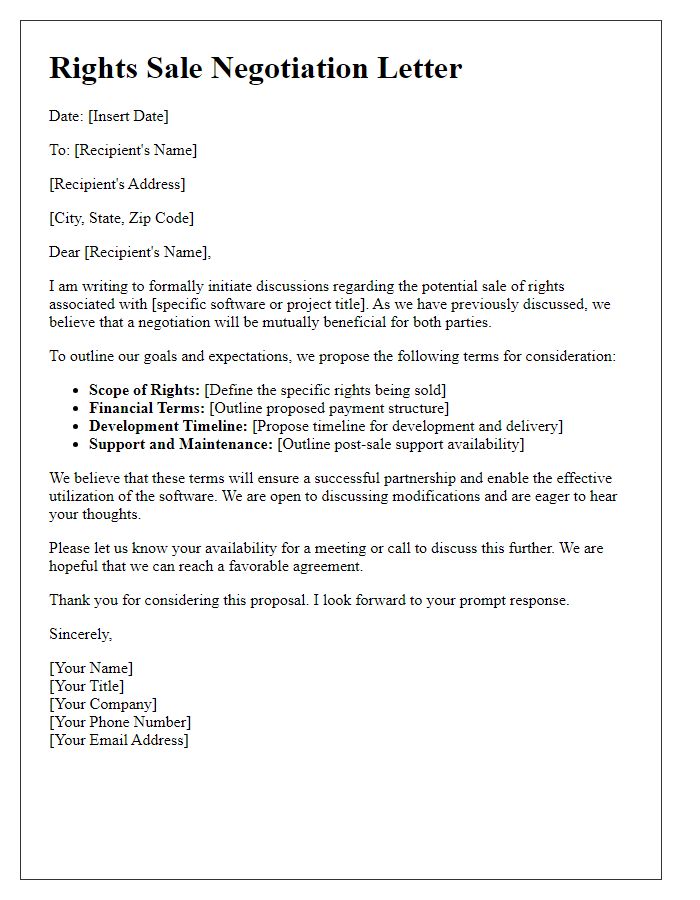
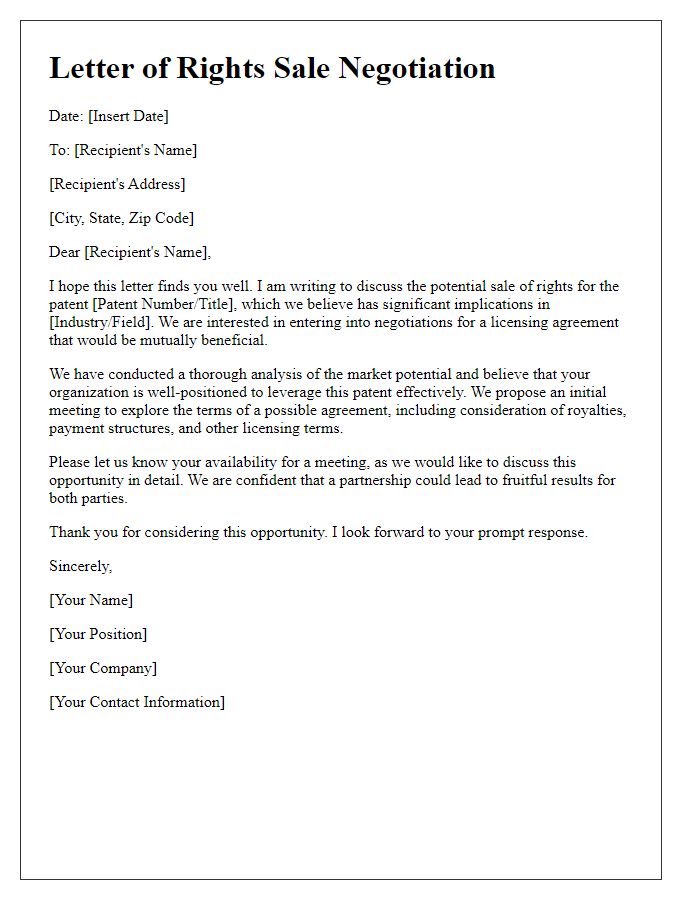
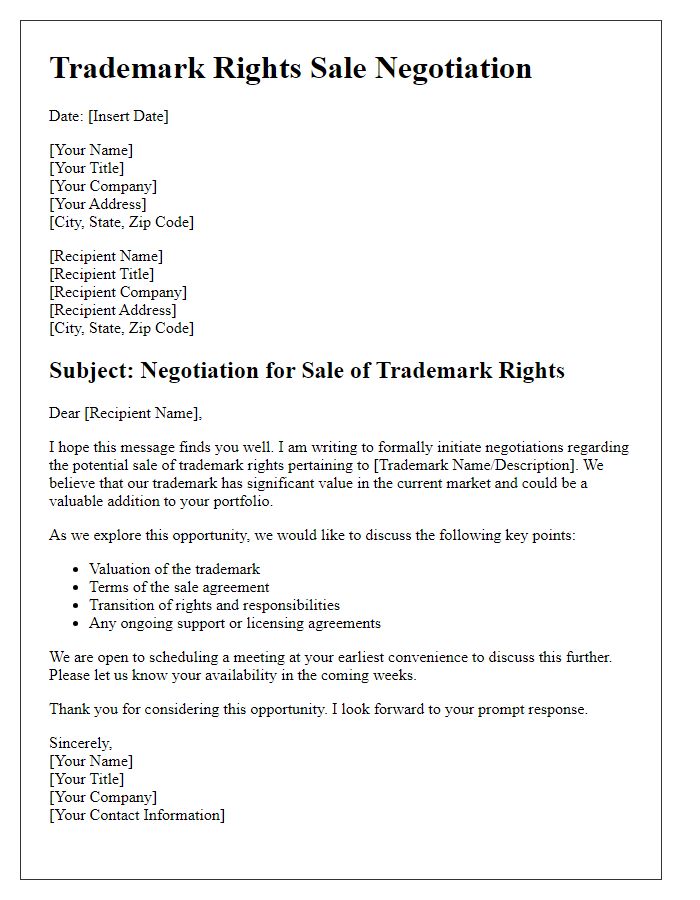
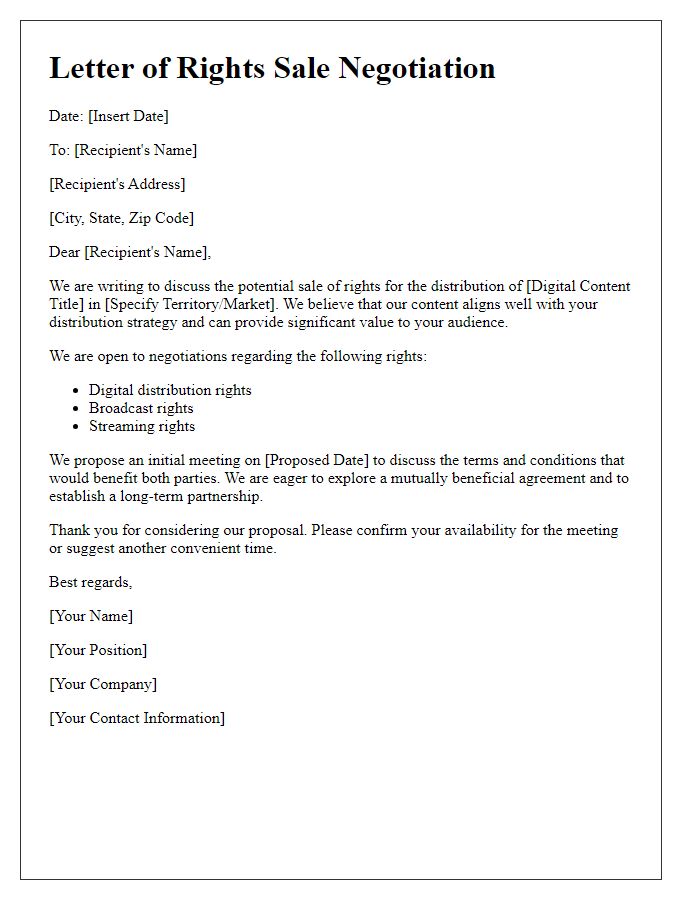


Comments